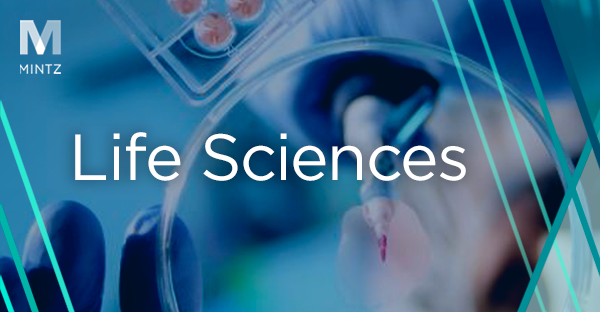
FDA Regulatory
Viewpoints
Filter by:
FDA in Flux — July 2025 Newsletter
July 9, 2025 | Article | By Joanne Hawana , Benjamin Zegarelli
The July 2025 edition of FDA in Flux highlights five significant developments shaping the regulatory landscape for medical, life sciences, and consumer product sectors.
A Texas Federal Court Sides with Laboratories, But There May Be Unintended Consequences for FDA
April 10, 2025 | Blog | By Benjamin Zegarelli, Joanne Hawana
The obvious result of the legal shootout between the U.S. Food & Drug Administration (FDA) and clinical laboratory trade associations, the American Clinical Laboratory Association and the Association for Molecular Pathology, in the Eastern District of Texas to determine whether the Federal Food, Drug, and Cosmetic Act (FD&C Act) permits the agency to regulate laboratory developed tests (LDTs) is a complete victory for clinical laboratories. The U.S. district judge’s decision, issued on March 31, 2025, vacated the May 2024 final rule through which FDA sought to specify that LDTs are agency-regulated in vitro diagnostic products (IVDs) and to describe a plan for phasing-in enforcement of existing medical device regulations for such products over four years (see our previous posts on the LDT final rule here and here). In adopting the plaintiffs’ arguments wholesale, however, the judge created some incongruities in the relevant regulatory frameworks, as well as several quandaries for FDA and the clinical laboratory industry going forward. These inconsistencies could have greater consequences down the road if the Trump administration decides not to appeal the ruling.
FDA’s Backup LDT Enforcement Method: Specimen Collection Kits
March 13, 2025 | Blog | By Benjamin Zegarelli, Joanne Hawana
We have written at length about the U.S. Food and Drug Administration’s (FDA’s) actions to promulgate regulations specifying the agency’s authority to regulate laboratory developed tests (LDTs) as medical devices and to phase out the agency’s historical approach of enforcement discretion towards such tests (see here, here, here, and here). However, one infrequently considered regulatory compliance issue for LDTs is their reliance on separate specimen collection devices or convenience kits. All LDTs require the use of some form of biological specimen, such as blood or saliva, which may be collected by health care professionals in a clinical setting or by consumers in their homes before being submitted to a laboratory for testing.
Five Observations from FDA’s Responses to Comments in the Final Rule on LDTs
July 10, 2024 | Blog | By Benjamin Zegarelli
Now that the final rule on laboratory developed tests (LDTs) has been available for over a month and the stages of the enforcement discretion phaseout process and the Food and Drug Administration’s (FDA’s) newly proposed policies for continuing limited enforcement discretion for certain types of LDTs have been thoroughly described and dissected (including by us in our previous post), it’s high time to dig into FDA’s perspectives on the comments it received on the proposed rule.
FDA’s Final LDT Rule Is Here, and the Changes Show the Agency Is Serious and Actually Listening to Stakeholders
May 6, 2024 | Blog | By Joanne Hawana , Benjamin Zegarelli
The Food and Drug Administration (FDA) published its final rule on laboratory developed tests (LDTs) in the Federal Register on May 6, marking a watershed moment in the agency’s arduous decade-plus-long journey toward winding down its historical enforcement discretion posture for LDTs. But FDA’s crusade is far from over. It will have much to do to implement the four-year phase-out period described in the final rule and those efforts may be delayed by litigation seeking to enjoin implementation of the rule altogether. While we wait for the litigation shoe to drop, let’s take a look at what the final rule says and the changes FDA made in these highly significant policy decisions since the Notice of Proposed Rulemaking was published on October 3, 2023 (see our previous posts on the NPRM here and here).
FDA Warning Letter Is a Stark Reminder That If You Claim Your Product Is RUO, It Has to Be RUO
April 3, 2024 | Blog | By Joanne Hawana , Benjamin Zegarelli
In vitro diagnostics, or IVDs, have a somewhat unique position among the gamut of products that the Food and Drug Administration (FDA) oversees and regulates on behalf of the U.S. public. IVDs are classified as medical devices and include “reagents, instruments, and systems intended for use in diagnosis, including determining the state of health, through the collection, preparation, and examination of specimens taken from the human body.” Unlike human drug and non-IVD device products, which generally must be authorized for a specific medical use prior to commercialization, IVD products may be sold for certain scientific research studies without FDA authorization, but such IVD products may not be sold for clinical diagnostic use.
Health Law Diagnosed – A Discussion on the Regulatory Requirements for LDTs
March 7, 2024 | Podcast | By Bridgette Keller, Joanne Hawana , Benjamin Zegarelli
In this episode of Health Law Diagnosed, host Bridgette Keller is joined by Mintz Health Law attorneys Joanne Hawana and Benjamin Zegarelli to discuss the FDA’s long-awaited proposed rules that actively regulate laboratory developed tests (LDTs).
FDA Faces Critical Deadlines in 2024, Even Without an Election Looming
March 6, 2024 | Blog | By Joanne Hawana
The American public knows that 2024 is a critical election year, with the next race for the presidency in November expected to be another face-off between President Biden and former President Trump. What the majority may not know quite as well, however, is how many important regulatory programs the Food and Drug Administration (FDA) has tasked itself with completing sometime this year. Given the centrality of much of FDA’s work to the average American consumer and all users of health care services, not to mention the various business stakeholders whose operations can be shaped in part by policy decisions executed by the agency, this blog post will preview upcoming milestones that FDA is expected to meet in 2024.
2023: Another Year Chock Full of Challenges for FDA
December 20, 2023 | Blog | By Joanne Hawana , Benjamin Zegarelli
In 2023, the FDA navigated challenges while achieving significant public health milestones. Member Joanne Hawana and Of Counsel Benjamin Zegarelli highlight key takeaways from the year, addressing multifaceted issues such as CBD regulation, the overhaul of in vitro clinical tests, and the management of manufacturing failures. These pivotal topics underscore the FDA’s proactive approach to evolving healthcare regulations and technological advancements.
The LDT Debate: Unpacking Public Responses to FDA’s Proposed Rule
November 20, 2023 | Blog | By Benjamin Zegarelli, David Gilboa
The U.S. Food and Drug Administration (FDA) recently released a proposed rule that would seek to regulate laboratory developed tests (LDTs) as medical devices under the Federal Food, Drug, and Cosmetic Act (FDCA). This rule could reshape the landscape of LDTs and, as expected, has generated substantial attention and feedback from the public, with both supportive and negative comments flooding in. We previously provided a summary of the proposed rule and FDA’s lengthy justification for it here. In this blog post, we will examine some of the key arguments presented in the public comments submitted to Docket FDA-2023-N-2177, as well as public statements published by industry trade associations.
Working Together, FDA, NTIA, and Domain Registries Take Down 30 Websites Illegally Selling Opioids
February 10, 2021 | Blog
Recent Amendments to the FDA Laws Attempt to Clarify and Improve Existing Systems
January 28, 2021 | Blog | By Joanne Hawana
WEBINAR REMINDER: Mandatory or Voluntary Workplace Vaccination — Guidance for Employers
January 13, 2021 | Blog | By Geri Haight, Jennifer Rubin, Joanne Hawana
Looking Ahead: FDA in 2021
January 8, 2021 | Blog
FDA in 2020: What a Year! (Part 3 of 3)
December 23, 2020 | Blog | By Joanne Hawana
FDA in 2020: What a Year! (Part 2 of 3)
December 22, 2020 | Blog | By Joanne Hawana
FDA in 2020: What a Year!
December 15, 2020 | Blog | By Benjamin Zegarelli
An Update on FDA’s Contribution to COVID-19 Diagnostic Testing
November 5, 2020 | Blog | By Joanne Hawana
Bioethics in a Pandemic: FDA Guidance on Granting EUAs for a COVID-19 Vaccine
October 29, 2020 | Blog | By Bridgette Keller, Benjamin Zegarelli
FDA Provides Update on Pre-Cert Program and Launches Digital Health Center of Excellence
October 19, 2020 | Blog
FDA’s Prescription Drug Advertising Enforcers Issue COVID-19-Related Warning Letter
October 5, 2020 | Blog | By Joanne Hawana
Final Canadian Drug Importation Rule and HHS Certification Issued Under Section 804 of the Food, Drug and Cosmetic Act
September 28, 2020 | Blog | By Joanne Hawana
Introduction to the Due Diligence Process, Second Edition
September 2, 2020 | Video
With Release of New Guidance, FDA Signals It’s Serious About Enforcing Clinical Trial Data Requirements
August 20, 2020 | Blog | By Joanne Hawana
FDA Greenlights Updates to the Purple Book Database
August 6, 2020 | Blog
Beyond COVID: House Committee Advances Several FDA-Related Bills
July 23, 2020 | Blog | By Margaret Jewett
Further Update on FDA’s Comprehensive Regenerative Medicine Framework: November 2020 Deadline Extended by Six Months
July 21, 2020 | Blog | By Joanne Hawana
CMS Proposes Rule to Pave the Way for Value-Based Drug Purchasing
June 26, 2020 | Blog | By Theresa Carnegie
Update on FDA’s Comprehensive Regenerative Medicine Framework: Looming November 2020 Deadline Preceded by a Flurry of Letters from CBER and a New JAMA Editorial
June 23, 2020 | Blog | By Joanne Hawana
Federal Appeals Court Affirms Lower Court Ruling: Drug Pricing Transparency Rule Exceeds HHS’s Regulatory Authority
June 18, 2020 | Blog | By Joanne Hawana
Explore Other Viewpoints:
- Data Centers & Digital Infrastructure
- AI: The Washington Report
- Antitrust and Federal Regulation
- Appellate
- Arbitration, Mediation & Alternate Dispute Resolution
- Artificial Intelligence
- Awards
- Bankruptcy & Restructuring
- California Land Use
- Cannabis
- Class Action
- Complex Commercial Litigation
- Construction
- Consumer Product Safety
- Corporate Governance (ESG)
- Cross-Border Asset Recovery
- DEI Legal Developments
- Debt Financing
- Direct Investing (M&A)
- Diversity
- EB-5 Financing
- Education & Nonprofits
- Employment
- EnforceMintz
- Environmental (ESG)
- Environmental Enforcement Defense
- Environmental Law
- Environmental, Social, and Corporate Governance (ESG)
- FDA Regulatory
- False Claims Act
- Federal Circuit Appeals
- Financial Institution Litigation
- Government Law
- Growth Equity
- Health Care
- Health Care Compliance, Fraud and Abuse, & Regulatory Counseling
- Health Care Enforcement & Investigations
- Health Care Transactions
- Health Information Privacy & Security
- IP Due Diligence
- IPRs & Other Post Grant Proceedings
- Immigration
- Impacts of a New US Administration
- Insolvency & Creditor Rights Litigation
- Institutional Investor Class Action Recovery
- Insurance & Financial Services
- Insurance Consulting & Risk Management
- Insurance and Reinsurance Problem-Solving & Dispute Resolution
- Intellectual Property
- Investment Funds
- Israel
- Licensing & Technology Transactions
- Life Sciences
- Litigation & Investigations
- M&A Litigation
- ML Strategies
- Managed Care
- Medicare, Medicaid and Commercial Coverage & Reimbursement
- Mergers & Acquisitions
- Patent Litigation
- Patent Prosecution & Strategic Counseling
- Pharmacy Benefits and PBM Contracting
- Portfolio Companies
- Privacy & Cybersecurity
- Private Client
- Private Equity
- Pro Bono
- Probate & Fiduciary Litigation
- Products Liability & Complex Tort
- Projects & Infrastructure
- Public Finance
- Real Estate Litigation
- Real Estate Transactions
- Real Estate, Construction & Infrastructure
- Retail & Consumer Products
- Securities & Capital Markets
- Securities Litigation
- Social (ESG)
- Special Purpose Acquisition Company (SPACs)
- Sports & Entertainment
- State Attorneys General
- Strategic IP Monetization & Licensing
- Sustainable Energy & Infrastructure
- Tax
- Technology
- Technology, Communications & Media
- Technology, Communications & Media Litigation
- Trade Secrets
- Trademark & Copyright
- Trademark Litigation
- Unified Patent Court (UPC)
- Value-Based Care
- Venture Capital & Emerging Companies
- White Collar Defense & Government Investigations
- Women's Health and Technology







